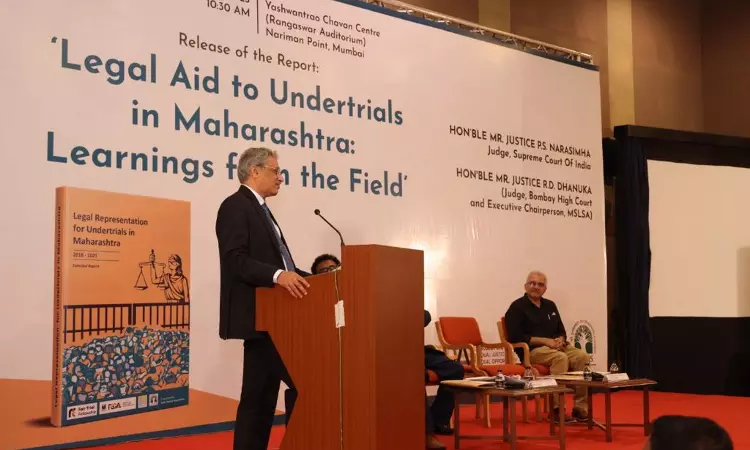Bail Pendency Is An Emergency Situation Needing Urgent Attention : Justice PS Narasimha
LIVELAW NEWS NETWORK
1 Feb 2023 6:48 PM IST

Next Story
1 Feb 2023 6:48 PM IST
Justice. P.S. Narasimha of the Supreme Court of India said the average quality of legal representation, both legal aid and private, needs to be upgraded. He spoke on the urgency of improving the quality of and collaboration between institutions of the criminal justice system to ensure protection of the rights of individuals impacted by the system. He also noted that ‘the current state...
